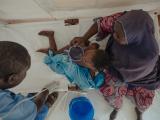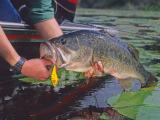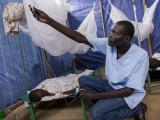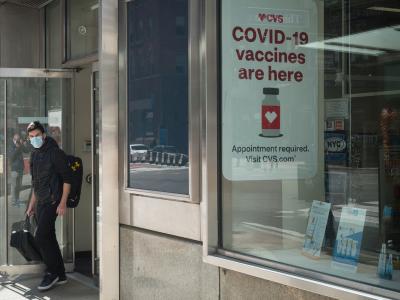Sep 12, 2007 (CIDRAP News) – A cabinet-level working group assigned by President Bush in July to explore import safety issues issued its initial report recently, suggesting a risk-based monitoring strategy and calling on government agencies to use technology to improve collaboration on import-related activities.
Bush's actions were prompted by several recent product safety problems that surfaced over the summer and involved Chinese imports. Food-related incidents involved melamine-contaminated wheat gluten that was used in animal and fish feed, and seafood that contained residues of unauthorized veterinary drugs.
Mike Leavitt, secretary of the Department of Health and Human Services (HHS), led the investigation and presented the report to the president on Sep 10. In a letter that accompanied the report, Leavitt wrote that the United States must shift from a "snapshot" approach of stopping unsafe products at the border to a "video" model that identifies critical points in an imported product's life cycle.
"Such a risk-based, prevention-focused model will help ensure that safety is built into products before they reach our borders," Leavitt wrote.
Because state and federal agencies don't use integrated information-sharing systems, crucial information on imports is sometimes missed, the report says. For example, the US Department of Agriculture's (USDA's) import inspection data system is not connected to the system used by US Customs and Border Protection (CBP).
"This lack of connectivity between CBP and USDA systems has created the possibility, which is now being addressed, for imported products to enter domestic commerce without being inspected in accordance with federal requirements," the report states.
Another challenge that government officials need to address is companies and individuals that circumvent US restrictions on certain imports. For example, the working group found that in 2006 CBP intercepted 45 containers of chicken, chicken parts, and other meat products that were smuggled into the country as frozen seafood.
Leavitt said in his letter that over the next several weeks the working group will gather comments and recommendations from the public. In mid November the group will follow up with an action plan that will contain several short- and long-term recommendations.
See also:
Jul 20 CIDRAP News story "FAO, WHO urge vigilance in light of recent food scares"
Jun 28 CIDRAP News story "Drugs in Chinese seafood trigger FDA import ban"




















